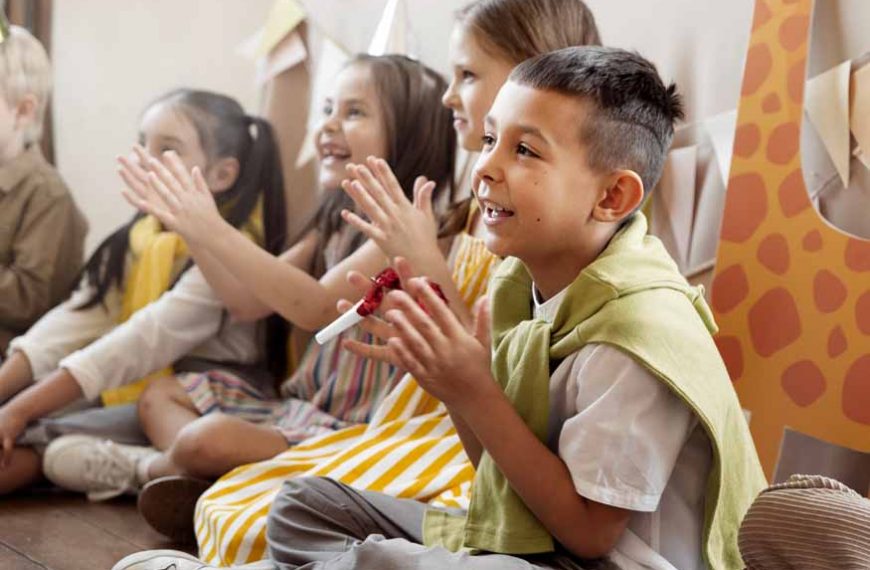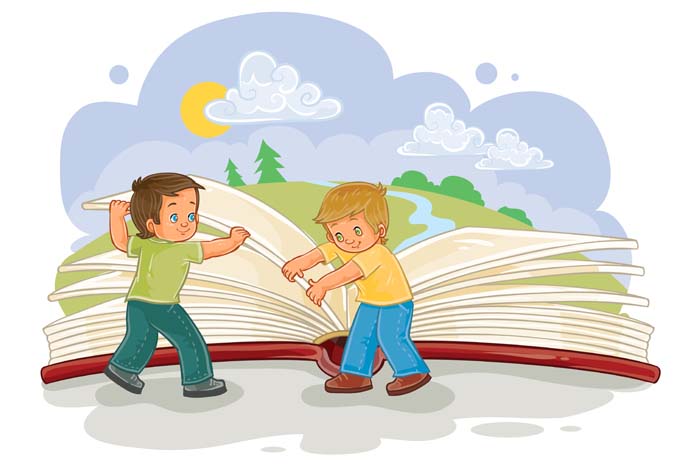Clapping is something that comes very naturally to children and adults alike. Whether we clap our own hands or clap hands with someone else, there are many meanings and benefits of clapping.
The different types of claps include high five claps that show appreciation, clapping hands to cheer or encourage someone, gently clapping to the rhythm of an enjoyable song, clapping hands to get someone’s attention or the attention of a crowd, or simply having fun with your friend through clapping games.
Benefits of Hand Clapping for Kids
Did you know that clapping which comes so easily to all of us has a host of benefits especially for children? The best thing about clapping is that it doesn’t need any special equipment or materials, just our own two hands and maybe those of our friends if we are playing a game.
- There are a lot of pressure points on our palms and when we clap, we activate those pressure points and it helps with circulation in our body.
- It is a good way to keep children busy and boredom at bay.
- Initially it helps in the development of gross motor skills of the hands as babies have to learn to put both their palms together, this moves on to fine and gross motor skills with older children since both hands and fingers are at play.
- Encourages bilateral coordination because at times both hands have different actions.
- Clapping activities and games also aid in skill progression. Children learn to clap by themselves, then move on to having one partner and finally doing the activity with a group of friends. Within the group, the clapping activity progresses from simple to complex.
- This is a wonderful activity to build social and emotional skills. Children learn to wait their turn, control their impulses, be patient and empathize with others who are still learning. As children become more proficient, their confidence also increases.
- The clapping activities help language development, children learn new words and meanings like front, back, over, under and so on, they learn by doing which helps them remember the meanings of the words.
- Different types of claps, clapping patterns and sequence encourages listening skills and even memory, as children have to know the correct order and flow as well as the words of the rhyme being recited.
- There is healthy competition and creativity among children as they try to increase their speed and develop increasingly complex clapping patterns.
With so many benefits of clapping hands, and no extra materials required, there is no excuse not to indulge in these hand clapping games. You can even begin playing different hand clapping games with your baby when they are a few months old, start with simple activities and watch your baby smile in recognition and anticipation as they begin to recognise the hand clapping games you play with them. Don’t be disheartened if your baby doesn’t respond initially, be patient, you will need to keep at it and have plenty of repetition before your little one finally understands and begins to respond.
Hand Clapping Games and Activities for Kids
Here are a few popular hand clapping games to begin with. For these games it is important to maintain a rhythm. It is okay to start slow till your child gets the hang of it and then build up speed gradually.
- Pat- a- cake-
- Clap your hands-
- Double, double-
- 4. A Sailor Went to Sea
Pat-a-cake, pat-a-cake, baker’s man
Bake me a cake as fast as you can
Mix it and stir it and mark it with a “b”
And put it in the oven for Baby (you can use your child’s name here) and me.
To play this game, when singing ‘pat a cake’, you simply clap your hands together the first time, the second time you clap both your hands with your baby’s hands, for the rest of the song you do the movements as per the song, and end with a hug.
Clap your hands
Clap your hands
Listen to the music and clap your hands.
Touch your feet
Touch your feet
Listen to the music and touch your feet.
A simple game to play with your baby, you can sing this song fast or slow and clap your own hands accordingly. You can also add wordings like ‘tap your head’, ‘touch your nose’, ‘pat your cheeks’ and so on.
Double, double, this, this,
Double, double, that, that,
Double this, double that,
Double, double, this, that.
For this game you need to do claps and fist bumps, on the words “double” you clap your hands together, for the words “this” you clap your partner’s hands, and for the words “that” you do a fist bump with your partner. Sounds simple enough, right? But it will take a bit of practice before you can do it without any mistakes.
A sailor went to sea, sea, sea,
To see what he could see, see, see.
But all that he could see, see, see,
Was the bottom of the deep blue sea, sea, sea.
In this rhyme you can clap your hand and your partner’s hand alternately at each syllable and when you reach the triple word, you clap your partner’s hand three times. You can also do one clap- both your hands, then yours and your partner’s left hand , then clap both your hands again, then clap yours and your partner’s right hand, finally clapping yours and your partners both hands together for the triple word.
You could also play some nursery rhymes and make up some clapping actions and enjoy yourselves on days you can’t go out. Make sure you pick catchy tunes with a peppy rhythm. If you look around your neighbourhood or local parks, we’re sure you’ll find a lot more clapping games, some in regional languages too. Get others involved in doing these clapping games with your child, a grandmother, an enthusiastic aunt, cousins, even neighbourhood kids.
At EuroKids, we are aware of the benefits that such games and activities have on the overall development of the child and hence try to include them in as many school activities as possible. Click here to find a centre closest to you and see for yourself how children are always gainfully employed in various activities to enhance their developmental skills.














